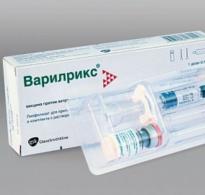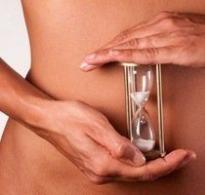Притяжательные местоимения упражнения. Упражнения на притяжательные местоимения
Раздел «Местоимения» — один из важнейших разделов грамматики любого языка и начинать местоимения в английском языке нужно уже на первом уровне изучения. В данной статье я публикую упражнения для начинающих по самым важным группам местоимений. На теоретический материал по теме «Местоимения в английском языке» даются ссылки. Упражнения на местоимения для начинающих располагаются по мере возрастания сложности и содержат только наиболее употребительную лексику.
Местоимения. Упражнения для начинающих (уровень 1- beginner)
1. Личные местоимения. Упражнения для начинающих
Упражнение 1. Заполните таблицу. Выбери из списка слова, которые можно заменить на “he”, “she”, “it”, “they”.
Children, a cat, animals, Mary, parents, Oleg, friends, a pen, books, a family, rain, a house, mice, February, summer, a river, Peter and Mike. a dog, windows, Tuesday
| he | she | it | they |
Упражнение 2. Замените выделенные слова личными местоимениями.
1. Nick is from Great Britain. 2. Iren is a student. 3. Bert and his brother live in London. 4. Helen and me are good friends. 5. Are you and your sister twins? 6. The cat is drinking milk.
2. Указательные местоимения: this, these, that, those
Упражнение 3. Постройте предложения по образцу. Используйте повелительное наклонение глагола look и указательные местоимения this – эта (этот) и these –эти.
Глагол в повелительном наклонении
стоит в первой форме (из словаря).
look – смотреть
Look at … – Посмотрите на …
- man / fat — Look at this man. He is fat. — Посмотрите на этого мужчину. Он толстый.
- hat / new – Look at these hats. They are new. — Посмотрите на эти шляпы. Они новые.
1. woman / thin
2. sportsman / tall
3. sportswoman / short
4. children / noisy
5. feet / clean
6. hands / dirty
7. dogs / spotty
8. cats/ old
Упражнение 4. Выберите английские эквиваленты для местоимений this, these, that, those .
1. What colour are (те) pens?
2. (Тот) boy is my friend.
3. I want to read (ту) book.
4. (Те) children are my friends.
5. What is (это)?
6.(Этот) table is round.
7. (Эти) cats are white.
8. (Те) flowers are roses.
Упражнение 5. Переделайте предложения во множественное число.
ОБРАЗЕЦ. This is a spider. – These are spiders.
1. This is a spider. 2. That is a snail. 3. This is a star. 4. This is a boy. 5. This is a baby. 6. That is a flower. 7. That is a shelf. 8. Is this a sofa? 9. Is this a bookcase? 10. Is this a man? 11. Is that a woman? 12. Is that a train? 13. Is that a plane? 14. Is the window open? 15. Is the door closed? 16. That is not a king. 17. That is not a queen. 18. That is not a bus. 19. This isn’t a mountain. 20. This isn’t a mouse.
Упражнение 6. Переведите предложения с оборотом «Это… » на английский язык.
- Это ребенок. — This is a child.
- Это дети. – These are children.
1. Это шляпа.
2. Это машина.
3. Это игрушки.
4. Это ручка.
5. Это карандаши.
3. Личные и притяжательные местоимения
Упражнение 7. Заполните пропуски местоимениями my, your, his, her, our, their.
ЗАПОМНИТЕ: I would like = I’d like — я хотел бы
- I’d like some ice in ……orange juice.
- We’d like to have breakfast in….room.
- The children would like to watch TV in …. room.
- He’d like some milk in ….. cereal.
- She’d like lemon in …..tea.
Упражнение 8. Вставьте вместо точек пропущенные местоимения.
1.What’s …. name? — Jim Sanders. 2. What’s … name? — Jane Smith. 3. What are … names? — Jack and Tom. 4. What’s … name? — My name is Mary. 5. What is the dog’s name? — …..name is Black. 6. What are your names? — ……names are Dick and John.
Упражнение 9. Заполните пропуски притяжательными местоимениями .
- This is Mrs Simpson. And this is ……daughter.
- This is Mr White. And this is … wife.
- My name is Ann. And these are….. parents.
- These are Tom and Jack. And these are ….. sisters.
- This is my dog. And this is …. bone.
- These are cats. And these are … kittens.
- This is Mary And this is…. doll.
- We are sisters. This is ….. mother.
Упражнение 10. Внесите изменения в предложения, используя местоимения данные в скобках.
- I have a dog in my house. (She)
- I wash my hands and face in the morning. (He)
- I go to the cinema with my friends. (They)
- I play football with my brother. (He)
- I do my homework in the evening. (We)
- I help my mother. (They)
- I clean my room every weekend. (You)
- I drink my milk in the morning. (The cat)
- I often write letters to my granny. (You)
- I have my breakfast at seven thirty. (She)
Упражнение 11. Переведите на английский язык только местоимения.
В английском языке нет местоимения «свой «. Вместо него нужно употреблять соответствующее притяжательное местоимение (мой, наш, твой, его, ее, их).
1. Мой
карандаш на твоем
столе.
2. Он
дал отцу свой
адрес.
3. Ее
сестра живет в Москве.
4. Я
нашел его
часы.
5. Она
видела их
дом.
6. Его
собака ест из своей
миски.
7. Она дала мне свой
номер телефоона.
8. Ты видел наш
дом?
Упражнение 12. Переведите притяжательное местоимение «свой».
1. I gave him … (свой) pencil.
2. Marina gave me … (свой) textbook.
3. The students put … (свои) books on the desks.
4. Nick wrote down … (свой) address for her.
5. Show me … (свой) house.
6. We drank … (свой) tea.
7. The dog ate … (свою) bone.
Упражнение 13. Вставьте правильный вариант притяжательного местоимения.
1. What is (его) father?
2. Where are (ее) parents?
3. They are busy with (своими) lessons.
4. This is (их) flat.
5. What colour are the walls in that room? (Ее) walls are grey.
6. (Мои) parents are at work.
7. (Наша) flat has five rooms.
8. (Его) work is very interesting.
9. (Ее) pencil is on the table.
10. This is (наша) dog.
Иногда существительное ПОСЛЕ местоимения, во избежание повторения не ставится. В этом случае, употребляется самостоятельная форма притяжательного местоимения.
ПРИМЕР. This cat is hers. – Эта собака ее .
Упражнение 14. Переведите с английского.
- I have a house. This is my house. This house is mine.
- We have a dog. This is our dog. This dog is ours.
- They have a cat. This is their cat. This cat is theirs.
- You have a bike. This is your bike. This bike is yours.
- She has a sister. This is her sister. This sister is hers.
- He has a brother. This is his brother. This brother is his.
Упражнение 15. Вставьте нужную форму местоимения.
- I have got a bike. This is ……bike.
- Have you got a car? Is this car…?
- We have got a cat. This is …… cat.
- They have got a dog. This dog is…
- She has got many hats. These hats are…
- He has got many caps. These are … caps.
Упражнение 16. Переведите на английский, используя оборот и местоимения: личные и притяжательные (простую и самостоятельную формы).
- У меня есть ручка. Это моя ручка. Это ручка моя.
- У них есть квартира. Это их квартира. Эта квартира их.
- У тебя есть кошка. Это твоя кошка. Эта кошка твоя.
- У него есть друзья. Это его друзья. Эти друзья его.
- У вас есть дом. Это ваш дом. Этот дом ваш.
- У нее есть машина. Это ее машина. Эта машина ее.
- У нас есть кошка. Это наша кошка. Эта кошка наша.
- У собаки есть кость. Это ее кость. Эта кость ее. (a bone)
* * *
4. Личные местоимения и местоимения — дополнения
Упражнение 17. Дополни предложения личными местоимениями и местоимениями-дополнениями.
ОБРАЗЕЦ. I want to see them but they don’t want to see me .
1. He wants to see her but _______doesn’t want to see _______.
2. You want to see him but _______doesn’t want to see_______.
3. They want to see you but_______ don’t want to see_______.
4. She wants to see us but ________don’t want to see _______.
5. We want to see them but _______ don’t want to see_______.
Упражнение 18. Замените существительные в предложениях местоимениями-дополнениями.
ОБРАЗЕЦ. Please, pass the sweets to Sandy. — Please, pass them to Sandy.
1. The teacher reads the story
to the children.
2. Did you give the letter
to your friend?
3. Alice sends a card
to Granny.
4. Can you give the book
to my brother?
5. We gave some food
to the cats.
6. Will you tell this to my parents
?
7. Phone me and my brother
tomorrow.
8. I don’t like to talk to Nick.
9. Would you like to join Mary and me?
10. Tell Ann
about it.
Упражнение 19.
Переведите предложения. Вставьте местоимения-дополнения по смыслу.
1. I don’t know these men. Do you know …?
2. Where is Tom? I want to speak to …?
3. We live in Russia. Our parents live with…
4. I bought some bread. Will you take … out of the bag?
5. The children are in the yard. Can you see …..?
5. Вопросительные местоимения
Упражнение 20.
Вставьте вопросительные слова (вопросительные местоимения).
- (Что) do you like to do?
- (Сколько) friends have you got?
- (Как) are your parents?
- (Почему) are you so late?
- (Где) do you live?
- (Когда) is your birthday?
- (Кто) knows your telephone number?
Упражнение 21. Вставьте вопросительные слова (вопросительные местоимения) по смыслу. В некоторых случаю возможны 2 варианта.
1. … are you?
2. … is your name?
3. … do you live?
4. … colour is this flower?
5. … big is your family?
6. … do you learn English?
7. … do you have free time?
Упражнение 22. Выучите диалоги.
Dialogue 1.
— She has gone to the country. – Она уехала загород.
— What for? – Зачем?
— To visit her parents. – Навестить родителей.Dialogue 2.
— He has gone on a trip to the South. – Он отправился в поездку на юг.
— What for? – Зачем?
— To take pictures of the sea. – Сфотографировать море.Dialogue 3.
— Mother has gone shopping. – Мама ушла в магазин.
— What for? – Зачем?
— To buy some bread and milk. – Купить хлеба и молока.Dialogue 4.
— Mother said she needed you at home. – Мама сказала, что ты нужна ей дома.
— What for? – Зачем?
— To look after the children. – Присмотреть за детьми.
1. Найдите в следующих предложениях все типы местоимений. Переведите предложения.
- 1. Lara found her purse. It was in our garden.
- 2. I have some free time to talk to you about their party.
- 3. The twins asked me to teach them roller-skating.
- 4. My mum devoted herself to us, her children.
- 5. I myself baked these cupcakes.
- 6. Don’t touch this ticket. It’s mine.
- 7. We saw her in that shop but she didn’t see us.
- 8. Does anybody love Chemistry in your class?
- 9. It’s not his car. It’s hers.
- 10. Nobody will read those books.
2. Поставьте подходящие возвратные местоимения (myself, yourself, yourselves, ourselves, himself, herself, itself, themselves).
1. The dog enjoyed … with the children. (Собака веселилась с детьми.)
2. He cut … while shaving in the bathroom. (Он порезался, когда брился в ванной.)
3. Did you hurt … ? (Ты поранился?)
4. She introduced … as Alice Brown. (Она представилась как Алиса Браун.)
5. Kids, it wasn’t your fault. Please don’t blame … . (Дети, это была не ваша вина. Не вините себя, пожалуйста.)
6. Your face is dirty. Look at … in the mirror. (Твое лицо грязное. Посмотри на себя в зеркало.)
7. I don’t like people who usually talk about … . (Не люблю людей, которые разговаривают обычно о самих себе.)
8. I am the winner and I’m proud of … . (Я победитель, и я горжусь собой.)
3. Выберите подходящие личные и притяжательные местоимения. Переведите.
1. Give … (my, me, mine) a glass of water.
2. Who is sitting behind … (our, we, us)?
3. Would you like to dance with … (he, him, his)?
4. Joanna is going to meet … (them, they, their).
5. It took … (he, him, his) 5 days to get to … (you, your).
6. Please help … (I, me, my) with … (me, my) homework.
7. This is … (me, my, I) cat. … (His, Her, Its) name is Tom.
8. She promised to help … (us, our, we) and she will keep … (she, her, he) word.
4. Выберите верный вариант местоимений и переведите получившиеся предложения.
1. Did you enjoy … (myself, yourself, your) at the party? – Well. Nick did. But … (I, my, me) didn’t have a good time. I didn’t know … (someone, nobody, anyone) there. There were a lot of people and there was … (anywhere, nowhere, somewhere) to sit. Fortunately there was much food, so I helped … (myself, himself, yourself).
2. … (What, Which, Who) of the two T-shirts do you like? — … (I, Me, My) like both of … (they, them, their). – And do you like … (this, these, that) jeans? – I think … (they, them, their) are awful.
3. I haven’t got … (some, any, no) sweets for the kids today. Have you got … (some, any, no) sweets? – Don’t worry. I’ve got … (some, any, no).
4. This is … (my, me, mine) garage. And the car is … (my, me, mine). That is … (our, ours, us) house. And the garden is … (our, ours, us).
5. … (This, These, That) two rings belong to … (him, his, he) grandmother.
Ответы:
1. her – It – our (Лара нашла свой кошелек. Он был в нашем саду.)
2. I – some – you – their (У меня есть немного свободного времени, чтобы поговорить с тобой об их вечеринке.)
3. me – them (Близнецы попросили меня научить их кататься на роликах.)
4. My – herself – us – her (Моя мама посвятила себя нам, своим детям.)
5. I — myself – these (Я сама испекла эти кексы.)
6. this – It – mine (Не трогайте этот билет. Он мой.)
7. We – her – that – she – us (Мы видели ее в том магазине, но она не видела нас.)
8. anybody – your (Кто-нибудь любит химию в твоем классе?)
9. It – his – hers (Это не его машина. Это ее.)
10. Nobody – those (Никто не будет читать те книги.)
1. itself
2. himself
3. yourself
4. herself
5. yourselves
6. yourself
7. themselves
8. myself
1. me (Дай мне стакан воды.)
2. us (Кто сидит позади нас?)
3. him (Ты хотела бы потанцевать с ним?)
4. them (Джоанна собирается их встретить.)
5. him – you (Ему потребовалось 5 дней, чтобы добраться до тебя.)
6. me – my (Пожалуйста, помоги мне с домашним заданием.)
7. my – Its (Это мой кот. Его зовут Том.)
8. us — her (Она обещала помочь нам, и она сдержит свое слово.)
1. yourself – I – anyone – nowhere – myself (Тебе понравилось на вечеринке? – Ну, Нику понравилось. А я провел время плохо. Я никого там не знал. Было много людей, и было негде сидеть. К счастью, было много еды, и я угощался.)
2. Which – I – them – these – they (Какая из двух футболок тебе нравится? – Мне нравятся обе. – А тебе нравятся эти джинсы? – Думаю, они ужасные.)
3. any – any – some (Сегодня у меня совсем нет конфет для детей. У тебя есть конфеты? – Не волнуйся. Есть немного.)
4. my – mine – our – ours (Это мой гараж. И машина моя. Там наш дом. И сад наш.)
5. These – his (Эти два кольца принадлежат его бабушке.)
ГБПОУ СО «ТПК»
Possessive Pronouns
Exercise 1
Fill the gaps with possessive pronouns.
Nick has got a dog. . . . dog is clever (умный).
Have you got a room? Is . . . room big?
Ann has a lamp. Is it ... lamp?
I have got a book. . . . book is interesting.
They have got a good room. Is . . . room big?
Exercise 2
Choose the correct possessive pronouns.
1. Is this (your / yours) book?
2. It"s (their / theirs) door, not (our / ours).
3. They"re new pupils and I don"t know (their / theirs) names.
4. (Му/ Mine) flаt is bigger than (her / hers), but(her /hers) is nicer.
5. That"s not (my / mine) book. (Му / Mine) is new.
6. They took (our / ours) books and we took (their / theirs).
7. Are these pencils (her / hers)?
8. Is this (your / yours) house or (their / theirs)?
Exercise 3
Choose the correct possessive pronouns.
Is this yours / your daughter?
It"s theirs / their problem, not our/ours.
Are these her / hers shoes?
We"re going swimming with some friends of our/ours.
Is it yours / your article about spiders? -No, it"s not my / mine.
We know their / theirs address but they don"t know our / ours.
That"s not my / mine wallet. Mine / my is black.
His cottage is bigger than her / hers but her / hers is nicer.
My / mine parents live in Samara region, and your / yours?
Exercise 4
Complete the sentences with correct possessive pronouns.
This is my mum. … name"s Jess.
These are my sisters. … names are Mary and Dina.
These are my parents. … names are Tanya and Bob
This is my cousin. … name"s Helen.
This is my cousin. … name"s Fred
These are my sisters. … names are Tina and Nina.
This is my aunt. name"s Pam.
Exercise 5
Complete the sentences with correct possessive pronouns.
It is my house. It is… .
It is his house. It is … .
It is their house. It is … .
It is her house. It is … .
It is our house. It is … .
It is your house. It is … .
Exercise 6
Insert the correct possessive pronouns.
She is doing … homework.
We have … English lesson in the evening.
He is putting on … rain-coat.
I often do … homework with … friend.
This lady’s surname is Smith. What’s … first name?
Please sit down. Is it … document?
They do … morning exercises in the open air.
This table is too small. What’s … length?
Exercise 7
Insert the correct possessive pronouns.
Nick: Whose sunglasses are these?
Mary They"re Amy"s, I think. Yes, they"re … .
Paul: Whose baseball cap is this?
Amy: That"s … too! Thanks.
Mary: Ugh! Whose dirty towel is this?
Nick: Ask Paul. I think it"s … .
Paul: Yes, it is. Thanks. You"ve got a great T-shirt, Amy!
Mary: Thanks. I borrowed it from my big sister. So it"s … really.
Nick: What about this umbrella?
Paul: Don"t be silly, Jason! You brought it, so it must be … .
Mary: Does this beach ball belong to us?
Nick: No, it isn"t … Those kids over there were looking for a ball, so it"s … probably.
Exercise 8
Choose the correct possessive pronouns.
1. Whose slippers are these? Are they … (my, mine) or … (your, yours)? – They are … (her, hers).
2. … (Our, Ours) car is cleaner than … (their, theirs).
3. Look at this girl. She is … (his, him) wife.
4. It’s not … (her, hers) lipstick. … (Her, hers) is darker.
5. … (My, Mine) life, … (my, mine) rules.
6. Was … (your, yours) trip exciting? - … (My, Mine) was boring.
7. Can I use … (their, theirs) hair-drier? - … (Our, Ours) is out of order.
8. Mrs. Novak is a friend of … (his, him).
9. Sometimes she waters … (my, mine) flowers and I water … (her, hers).
10. I remember the street but I don’t remember … (it, its, her, his) name.
Possessive Pronouns page 4 from 4
1. Выберите из скобок подходящее местоимение. Переведите предложения.
1. Whose slippers are these? Are they … (my, mine) or … (your, yours)? – They are … (her, hers).
2. … (Our, Ours) car is cleaner than … (their, theirs).
3. Look at this girl. She is … (his, him) wife.
4. It’s not … (her, hers) lipstick. … (Her, hers) is darker.
5. … (My, Mine) life, … (my, mine) rules.
6. Was … (your, yours) trip exciting? — … (My, Mine) was boring.
7. Can I use … (their, theirs) hair-drier? — … (Our, Ours) is out of order.
8. Mrs. Novak is a friend of … (his, him).
9. Sometimes she waters … (my, mine) flowers and I water … (her, hers).
10. I remember the street but I don’t remember … (it, its, her, his) name.
2. Употребите подходящее притяжательное местоимение (my, our, your, his, her, its, their).
1. You should play with … own toys.
2. Robert couldn’t use … notebook because it was broken.
3. The funny cat tried to catch … tail.
4. I hope you’ll enjoy … meal.
5. Anna drove … children to school.
6. I had … chest X-rayed.
7. We can bring … own instruments.
8. They often go to the Crimea because they love … nature.
9. She can’t find … glasses.
10. He didn’t give me … number.
3. Найдите ошибки в некоторых предложениях.
Например: Mine brother lives in Turkey. – My brother lives in Turkey. (Мой брат живет в Турции.)
1. It isn’t ours dog.
2. His watermelon was very sweet.
3. How many books are there in hers library?
4. The elephant hurt his leg.
5. Is this room your?
6. It’s my birthday, not yours.
7. Theirs teacher is younger than ours.
8. She is a friend of my.
9. The world is at her feet.
10. Did you like mine present?
Ответы:
1. mine – yours – hers (Чьи это тапочки? Мои или твои? – Её.)
2. Our – theirs (Наша машина чище, чем их.)
3. his (Посмотри на эту девушку. Она – его жена.)
4. her – Hers (Это нее её помада. Её темнее.)
5. My – my (Моя жизнь, мои правила.)
6. your – Mine (Твоя поездка была интересной? – Моя была скучной.)
7. their – Ours (Можно попользоваться их феном? – Наш сломался.)
8. his (Миссис Новак – его друг.)
9. my – hers (Иногда она поливает мои цветы, а я поливаю её.)
10. its (Я помню улицу, но не помню ее название.)
1. your (Тебе следует играть со своими собственными игрушками.)
2. his (Роберт не мог пользоваться своим ноутбуком, так как он был сломан.)
3. its (Смешной кот пытался поймать свой хвост.)
4. your (Надеюсь, вам понравится ваша еда.)
5. her (Анна отвезла детей в школу.)
6. my (Я сделал рентген грудной клетки.)
7. our (Мы можем принести свои собственные инструменты.)
8. its (Они часто ездят в Крым, потому что любят его природу.)
9. her (Она не может найти свои очки.)
10. his (Он не дал мне свой номер.)
1. It isn’t our dog. (Это не наша собака.)
2. Верно (Его арбуз был очень сладким.)
3. How many books are there in her library? (Сколько книг в её библиотеке?)
4. The elephant hurt its leg. (Слон повредил свою ногу.)
5. Is this room yours? (Эта комната твоя?)
6. Верно (Это мой День рожденья, а не твой.)
7. Their teacher is younger than ours. (Их учитель моложе нашего.)
8. She is a friend of mine. (Она моя подруга.)
9. Верно (Мир у её ног.)
10. Did you like my present? (Тебе понравился мой подарок?)
Упражнения составили наши английского языка
1. Fill the gaps with personal or reflexive pronouns.
1 . He is quit right, I agree with … completely.2 . I looked at … in the mirror and left the house in a very good mood.
3 . “Who is it?” - “It’s … may I come in?”
4 . Mr. Lloyds is very fat … weighs over a hundred kilos?
5 . … introduced his wife to the quests.
6 . Where shall … meet, Bob?
7 . James took the book and opened ….
8 . We don’t dress … for dinner here.
9 . I taught … to play the quitar.
10 . Selfish people only care about …
2. Put “some”, “any” or “no”.
1 . He does his homework without … difficulty.2 . This yeas all the apples are red, we are going out this morning to pick …
3 . I’d like … water, please.
4 . There weren’t … tomatoes left.
5 . I won’t go with you. I have … free time.
6 . There aren’t … students at the moment.
7 . Sorry, I have … matches.
8 . Do you have … money?
9 . The box was empty. There was apples in it.
10 . Pour me … milk, please.
3. Translate the sentences into English.
1 . Она ничего не сказала.2 . Он посмотрел на нее с удивлением.
3 . Она не захотела пойти с ним.
4 . Я попросил его налить немного молока.
5 . Когда ему было 3 года, он мог сам одеваться.
6 . Простите, но у меня нет времени.
7 . Какая красивая картина! Она твоя?
8 . Возьми свою чашку. Эта чашка - моя.
9 . Его мнение отличается от моего.
10 . Сегодня вечером придет кто-нибудь?
4. Complete the sentences using possessive pronouns (my, your, his, her, our, their).
1 . I left … car in the garage.2 . Mary hung … coat on the peg.
3 . Jack had … hair cut.
4 . Neil and David ate … supper.
5 . I hope you enjoy … holiday.
6 . We’ll invite you round to … house sometime and complete these by addig a possessive with own.
7 . You must make up … own mind.
8 . The children had to cook … own supper.
9 . Bill borrowed Jenny’s car … own can was being repaired.
10 . I’ll bring … own sheets and towels.
11 . Every dog had … own special basket to sleep in.
12 . You should do … own washing up.
Правильные ответы:
1. Заполните пропуски личными или возвратными местоимениями.
1. him | 2. myself | 3. me | 4. he | 5. he | 6. we | 7. it | 8. ourselves | 9. myself | 10. themselves2. Поставьте “some”, “any” или “no”.
1. any | 2. some | 3. some | 4. any | 5. no | 6. any | 7. no | 8. any | 9. no | 10. some3. Переведите предложения на английский язык.
1. She said nothing.2. He looked at her with surprise.
3. She didn’t want to go with him.
4. I asked him to pour some milk.
5. When he was 3 years old, he could dress him self.
6. Sorry, but I don’t have any time.
7. What a nice picture! Is it yours?
8. Take your cup. This one is mine.
9. His opinion differs from mine.
10. Will anybody come tonight?





